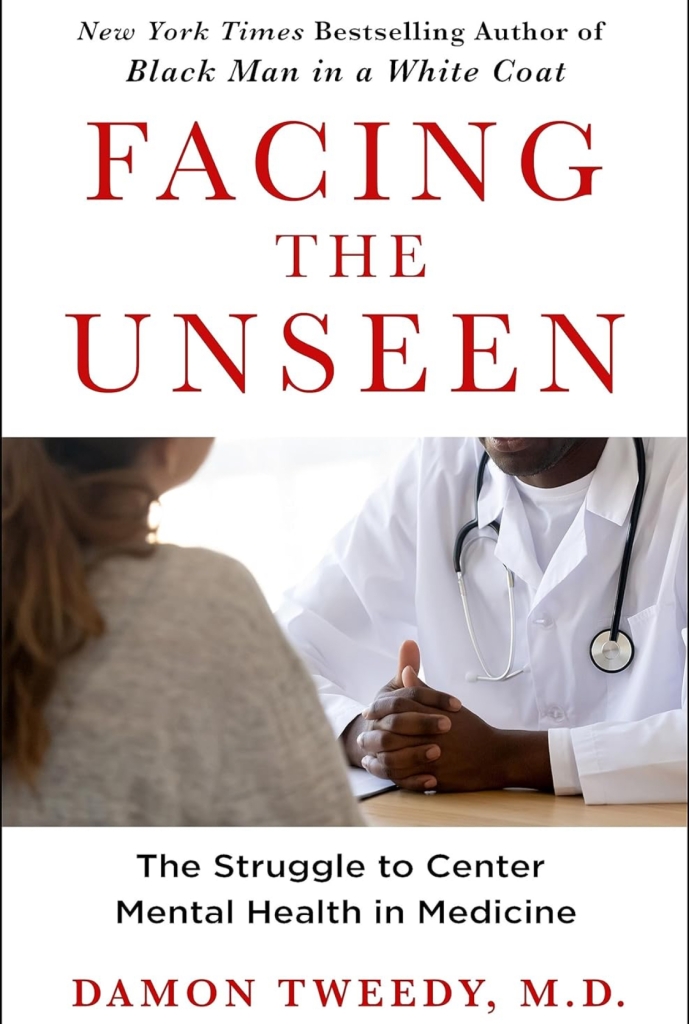Tags
book review, Fiction, historical-fiction, knitting, medicine, music, piedmont laureate, self help, writing
At Quail Ridge Books, The Two Writers Talk About Tweedy’s New Book, Facing The Unseen: The Struggle to Center Mental Health in Medicine
I was thrilled to be Dr. Damon Tweedy’s “conversation partner” at Quail Ridge Books in Raleigh this week. Together we were taking about his new book, Facing the Unseen, which is about the mental health crisis in this country, in our hospitals, and within our families. Tweedy, the bestselling author of Black Man in a White Coat and a professor of psychiatry at the Duke School of Medicine, has written another powerful volume, one that combines expert interviews, personal experience, and policy analysis to examine how the medical system fails people with mental illness. As he writes, “When a system marginalizes mental health … patients pay the price.”

Clearly, Dr. Tweedy was on his home turf at Quail Ridge Books, as he engaged the audience for close to 45 minutes with stories from his world—personal and professional—and then took at least a dozen questions from the audience. By 8 p.m., the program had ended and the good doctor took out his pen, signing his name in the books of a great many individuals who waited in a long line to greet and thank him.
To purchase Dr. Tweedy’s books from Quail Ridge, please click here. Or buy them from your local book store, Bookshop.org, or Amazon.com.

#
Here’s an excerpt from the BookPage review of Dr. Tweedy’s new book:
“Mostly, though, Facing the Unseen is about his patients. Tweedy is an excellent storyteller, making the people whom he treats unforgettably visible in all their complexities. Their stories embody why recognizing the mind-body connection is critical. There’s Natalie (all patients’ names are pseudonyms), an Iraq war veteran with PTSD, who came to the ER desperate for help. But treating her drug withdrawal was not considered a medical priority, and she was left to seek outpatient psychiatric care elsewhere. A passionate advocate for integrated medical and psychiatric care, Tweedy cites statistics that tally addiction and opioid abuse, PTSD, depression and anxiety, and the prevalent use of prescription pills. Throughout, he uses powerful descriptions that yield keen insights, showing us how the health care system sets doctors up to fail their patients, and offering solutions that will help.”
